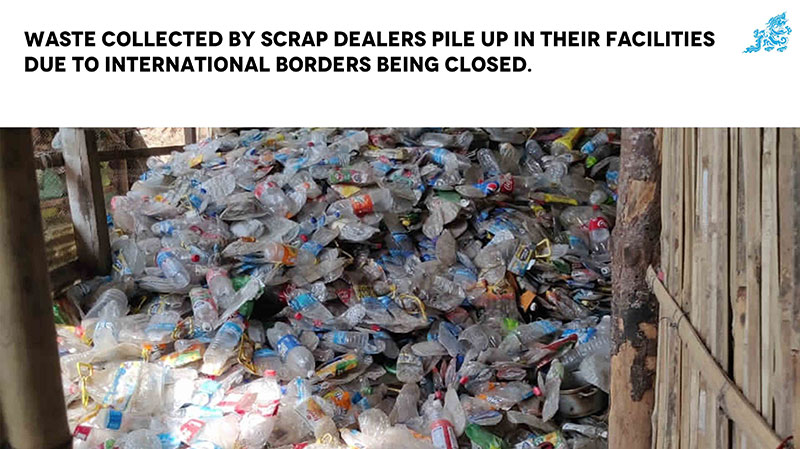Yangyel Lhaden
The increasing waste problem worsened when international borders closed during the pandemic, as scrap dealers could not sell off the scraps. It piled in their facilities.
Although waste dealers were allowed to export plastic, paper and carton box wastes since February 4 this year, it was not easy, as India did not allow plastic and polyethene terephthalate (PET) import since August 31, 2019.
Some scrap dealers said they were not aware it was an illegal business until they couldn’t export during the pandemic. Some were aware of the ban.
Scrap dealers said they owned licence and paid tax to custom. “It is legal from my practice but illegal aspect starts only from Jaigaon,” a scrap dealer said.
He said he had more than 20 employees and he has no other option but to sell it illegally.
A scrap dealer had requested the national Covid-19 task force to provide clearance to export scrap as Indian scrap dealer was willing to take the risk.
He said Indian scrap dealers had made arrangements in Jaigaon to allow the import of scraps.
As he started, other scrap dealers also started contacting their Indian scrap dealers and sold the scraps in a similar manner.
A month into exporting plastic, paper and cartons to India, a scrap dealer has exported seven truck trips of scrap. He still has five truckloads of scrap to export from his scrapyard.
The country produces 172.16 tonnes of waste every day on average, which is 0.23 kg per capita.
Greener Way’s founder, Karma Yonten, said the current practise was not sustainable and there was a need for intervention from the government to manage scraps within the country with recycling plants.
He said he makes electric fences out of plastic scraps other than PET.
Scraps from metal and beer bottles can be sold to Pasakha Industrial estates.
Scrap dealers said although Pasakha pays less, they were willing to sell it if the government support plants for other scraps.
Another waste management facilitator in Thimphu, Clean City, is also establishing Bhutan eco-paper to recycle paper waste.
Waste management
Waste management strategy 2019 highlighted issues of not being able to implement waste management although it was mandated through acts and regulations.
The strategy also stated relevant agencies will have to explore and adopt technologies that are locally appropriate because the current recycling market is heavily dependent on scrap dealers across the border town.
Waste was given priority with the launch of waste management flagship programme (WMFP) in 2019, which intends to provide end-to-end intervention for waste management in the country through multi-prolonged approaches.
The implementation of WMFP began in 2020 in Thimphu.
According to WMFP, recovery of waste will come from material recovering facility, refuse-derived fuel, construction and demolition plants, and e-waste dismantling centres. After recovery and re-using every bit of waste, the residue would be dumped in landfill or incinerated. Treatment of waste will also involve composting.
Karma Yonten said WMFP looked promising and they did not have to depend on scrap dealers across the borders if the implementation was successful.


